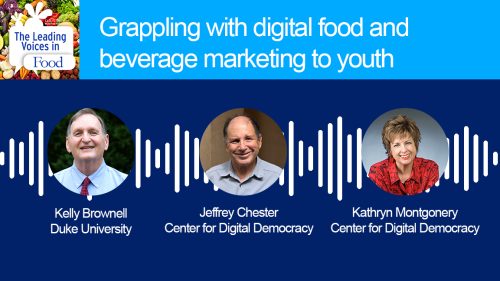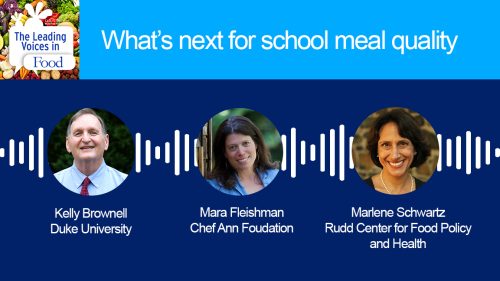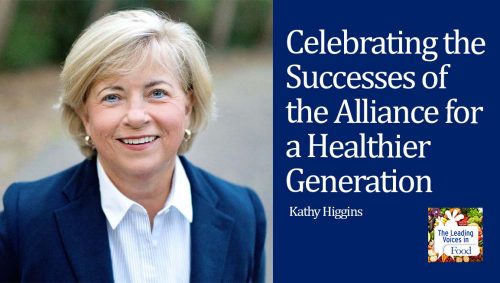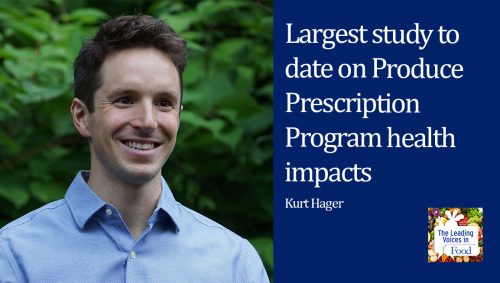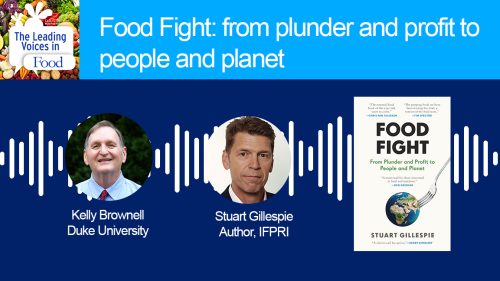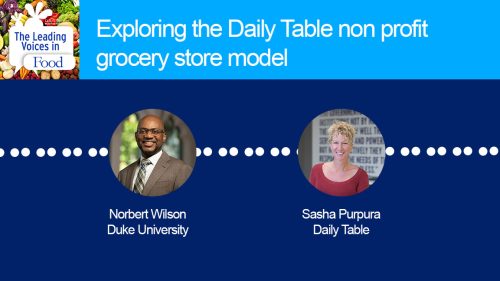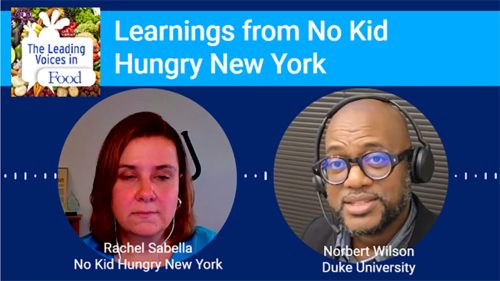The Leading Voices in Food
E177: Introducing Operation Good Food & Beverages – New Way to Think about Black Activism
What can be done to reverse racialized marketing of unhealthy foods to Black Americans? What if healthy eating could be seen as a radical act, or even as a form of Black activism and liberation? Today, we’re talking about these issues with Dr. Shiriki Kumanyika about a new campaign called Operation Good Food and Beverages. This is an advocacy movement developed by and for Black youth who want to reclaim healthy food as part of Black lives. Shiriki is an emeritus professor of biostatistics and epidemiology at the Perelman School of Medicine at the University of Pennsylvania, and research professor at the Drexel University Dornsife School of Public Health.
Subscribe: Apple Podcasts | TuneIN | YouTube Music | SoundCloud | PocketCasts | Radio Public
Tags: Addiction & Food | Advocacy & Food | Childhood Obesity | Equity, Race & Food Justice | Food Industry Behavior & Marketing |
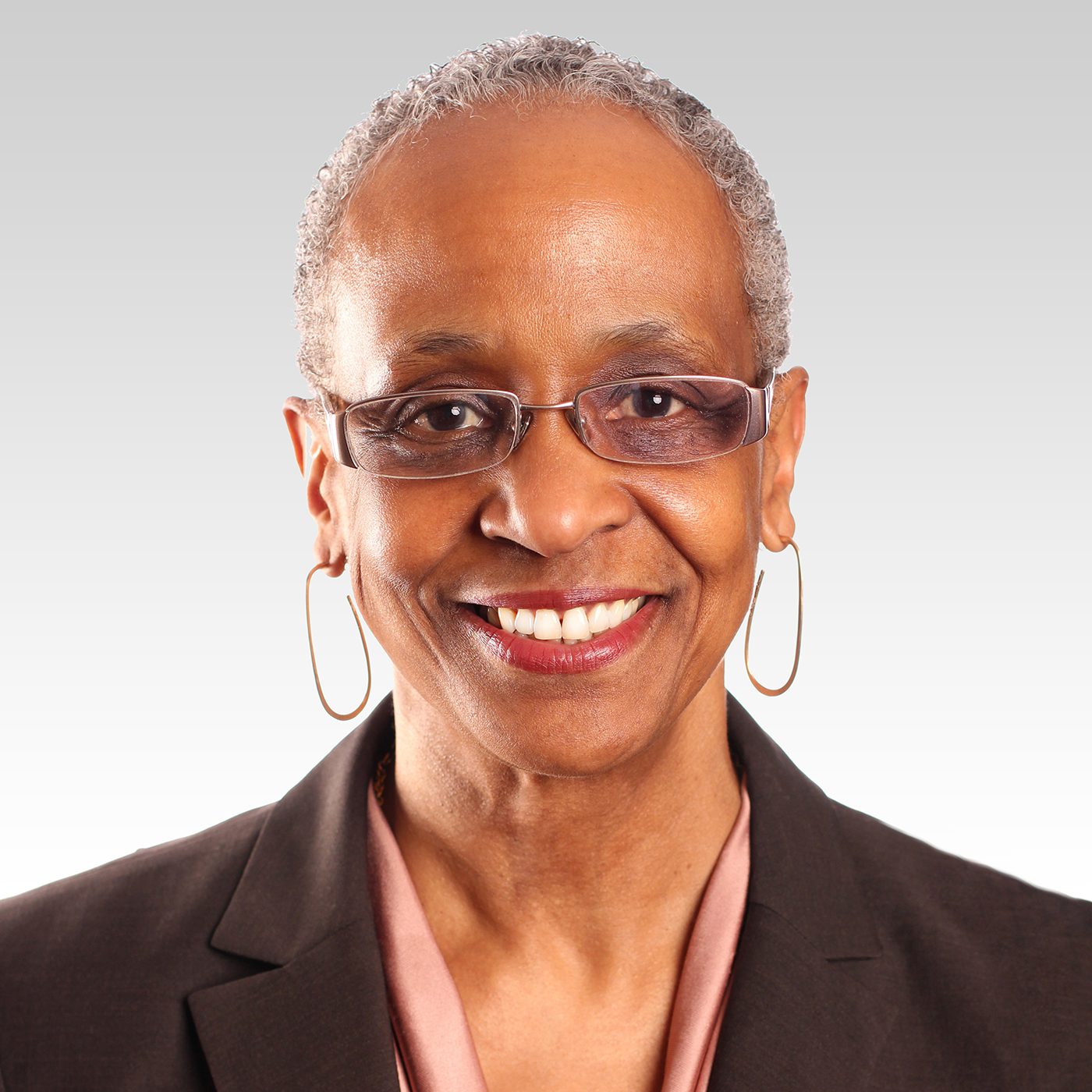
Shiriki Kumanyika, PhD, MPH, MS is a Research Professor in the Department of Community Health & Prevention at the Drexel University Dornsife School of Public Health and Professor Emerita of Epidemiology at the University of Pennsylvania. She holds a BA in Liberal Arts from Syracuse University, an MS in Social Work from Columbia University, a PhD in Human Nutrition from Cornell University, and a Master of Public Health from Johns Hopkins University. Over more than three decades, Dr. Kumanyika has led or collaborated on research related to obesity, sodium intake, and other aspects of diet and lifestyle and chronic disease risk reduction. Several of her studies have evaluated behavioral interventions to facilitate healthy eating and weight control in Black children or adults in clinical or community-based settings. Her research during the past 15 years has focused particularly on identifying ways to combat the effects of racialized, targeted marketing of unhealthy foods and beverages on food-related attitudes and practices of Black Americans. Dr. Kumanyika is the founding chair of the Council on Black Health, a research and action network dedicated to improving Black Health nationwide. She is a past president of the American Public Health Association and a member of the National Academy of Medicine.
Interview Summary
I long admired the work you’ve done on food and beverage marketing, particularly around the issues of targeted marketing. And then still, you do even more worth admiring and along comes this new campaign that you call Operation Good Food and Beverages. Can you tell us about it?
This campaign is really the culmination of my efforts to do something about the marketing of unhealthy foods in general. But to Black communities in particular, I think first and foremost, it’s a call to action to make healthier foods and beverages more available and promoted in Black communities, especially Black youth. It has some educational or motivational elements to it because the call to action is contextualized in a broader message about good food. And, how young people like to have good food, how it makes them feel, and that the messages are in one place on the website. We are more than food companies think we are. You know we’re much more than that. So it’s a positive campaign. The main elements: our website with various resources, and two social media accounts. One on Instagram and one on TikTok. The main audience is youth, but we also hope to reach parents and others in Black communities Including celebrities and allies of Black communities and anyone who really sees this as an opportunity to send a positive, but somewhat different message to the food sector about marketing of unhealthy foods and beverages.
So before we dive in and learn a little bit more about the nuts and bolts of this, why did you decide to focus on marketing to youth, and in particular, on Black youth specifically?
Well, there are a lot of reasons for choosing youth. I think the most positive reason is the increasing role of youth in various social justice movements, and in raising their voice. There’s a lot of energy in the generation that we were targeting here: Generation Z. Those are sort of late teenagers and maybe early college age. So that’s one reason. Youth are really great messengers, I think, for a positive message that relates to them and relates to their communities in general. The reason, in terms of food marketing, is that it is kind of a perfect storm. There’s a whole body of work that talks about the sensitivity in the adolescent years to identity formation issues, role models that they see, and perhaps a particular responsiveness to ads in Black youth. Seeing themselves positively represented, perhaps and helping in that way with identity formation, but linking this to some of these unhealthy products that they see in the media. So there are really a lot of reasons that Black celebrities are really prominent among people marketing these foods and beverages. And so we thought, considering that these diseases really start at a young age, then we would work with youth in terms of prolonging their lives and keeping their risk factors down.
That certainly makes sense. So tell us what youth will encounter when they interact with this program. What does the program consist of?
So the program consists of a website as the sort of main home base. It’s called Operation Good FB, and it is meant to create a very positive picture of foods and beverages that youth might want. As well as mentioning what the problem is, but not dwelling on the negatives of the problem and the negatives of the associated disease burdens. Because we really want it to be very uplifting and positive experience. The social media sites then have similar posts. The youth posts on those sites messages about good food and beverages. And the first thing you see is an opportunity to click and sign a petition. That is one of our key action items. It’s directed to the National Restaurant Association. It urges the National Restaurant Association to encourage their members to make healthier options available on the main menus that would appeal to teens. This is building on the progress they’ve made with healthy options for younger kids through the Kids LiveWell program. So those are the main elements. There are different things that people can do in terms of using social media and so forth, but it’s the website, two social media accounts. And the petition is critical for showing that there’s a broad base of support for what we’re asking.
Oh the petition is a really interesting idea. Would you envision, at some point, expanding it to other parts of the food industry beyond the Restaurant Association?
At this point, I can’t say because the petition is asking for the National Restaurant Association to meet with the Council on Black Health, which is our organization that is sponsoring Operation Good Food and Beverages. For that particular association, it’s relatively clear what the ask is. It’s very concrete. They have a lot of members. Those members have menus that directly relate to children and youth. Because we know through some CDC data about fast foods on any given day that one in every three children is eating at a fast food restaurant. So it’s very concrete. For the packaged food industry, which is also relevant, the ask is not as clear. I think we’re interested in seeing progress in the other types of foods, but they’re not as clearly targeted to youth. So if there’s a way to expand it, I would love to do that. But right now, to get action and to season success, we’re focusing on the National Restaurant Association and things that they can do. And hopefully they’ll be inclined to do.
It makes sense to start with the restaurant sector. It’ll be interesting to see over time if the petition has the effect that you hope it does whether other parts of the industry could be brought into the fold as well. So what do you hope will be different if you’re successful? What will change?
Well, I have high hopes. I think at minimum, a new conversation that would be picked up widely in the public health and social justice communities, and in the broader consumer communities, this it’s not an issue that’s talked about a lot in the consumer community and the public health. Messaging, although powerful and well-backed by evidence about the need for change, has just not been that effective in creating changes that would affect a broader audience. So some progress focused on the younger children.
I hope that we could have a new conversation and one that’s more positive than we’ve seen before. Because we think that people respond to positivity. And so if you’re always sort of bashing and saying, “This are the problems in the Black community and this is what you’re doing wrong,” we don’t think that that’s necessarily going to be effective. So I hope that we can shift the conversation somewhat to what we do want to see – to the solution as opposed to continually emphasizing only the problem. And ultimately, I would like to see what we’re asking for. We would like to see the good foods promoted. They’re a small part of advertising budgets overall, as I’m sure you know. We would like to see this balance really shift as a part of expressed demand, but also as a part of understanding in the industry that the current practices are really not representing what consumers want to the level that they could. So I think that’s what we’d like to see. You know, changing the world is a big deal, but if we can get it started and other people pick it up, maybe some of the celebrities will pick it up and use their celebrity power, then we can have a change in the food marketing conversation and eventually in the food marketing.
Well, you could only imagine the boost that would occur to this if some celebrities got involved. Another question I had as I was doing the introduction for this, we mentioned that Black youth had been involved in developing this program. Can you explain how that process unfolded and how that was important in determining the final content?
Well, the youth involvement is critical. We’re working with youth from a group cohort, Smiles MD, which is in Baltimore, Maryland, and it’s associated with Johns Hopkins University. And our sponsor was the Bloomberg Initiative at Johns Hopkins. So what they did, they set us straight from the very beginning about what they wanted to see in food and what their generation likes to see in the media. They like positive representations. They have very creative ideas about how to think about this. And as we go forward we are hoping that they can really connect with a larger network with youth organizations holding some web interactive sessions on social media and connecting directly with other youth who can spread the word within this generation even more broadly.
So they’ve been key because even though I’ve been studying this issue for a long time, I’m far from Gen Z, and we want to reach that group. And they do see things differently. The social media component is definitely something that they are looking at much more than the traditional media, for example.
Oh, I could only imagine the ingenuity of it must have come from youth getting so engaged in this. So let me ask you one final question. How can people participate if they want to join in and be part of this?
Well, there are many different ways people can participate. We would like everyone to start with the website and take a look at the petition, sign it if they’re on board with the ask, which are very positive, use the tips and recipes themselves, but then help to spread the word using social media kit that’s downloadable from the website. Spread the word among their networks if they are in touch with youth organizations who could, as a group, really broaden the campaign, post on the social media and so forth, show that there are thousands and thousands and thousands of people who think that the marketing mix could change.





